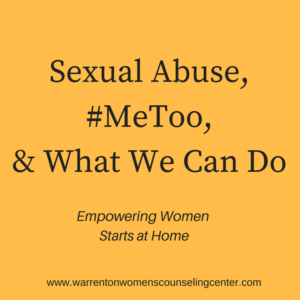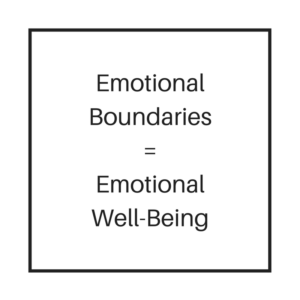Sexual Abuse, #MeToo, and What We Can Do

Over the past few weeks, we’ve seen a flood of allegations of sexual misconduct and abuse against Hollywood bigwigs (first with Harvey Weinstein, then others like Kevin Spacey, Dustin Hoffman, and Ben Affleck). This prompted the social media hashtag #metoo in which women shared their own experiences of being sexually mistreated. The effect was sobering (the hashtag was posted or tweeted out over 200,000 times), and it became apparent just how disturbingly prevalent this problem is.
Amidst this firestorm, there are so many questions: Who else was complicit? How did such sordid crimes get covered up for so long? Why didn’t these women come forth earlier (or did they but they weren’t taken seriously)? How can we make sure men live up to higher standards? How do we protect women? How can we ensure justice for the perpetrators while still holding to our philosophy of “innocent until proven guilty”?
As a woman myself and a mother of daughters, let me say clearly that I’m not interested in blaming any victims: I’m interested in empowering women
.As a mental health professional who specializes in working with girls and women, the main issue that I’d like to focus on is what we can do to help those who may find themselves vulnerable to sexual misconduct. Sadly, any conversation geared toward helping women avoid certain dangerous situations is often labeled as “victim blaming.” As a woman myself and a mother of daughters, let me say clearly that I’m not interested in blaming any victims: I’m interested in empowering women. Here are some ways that we can do that and put a stop to abuse:
It Starts At Home
 One of the most important tools you can give your children in the fight against abuse is a strong example of healthy relationships in your own home and family. From the earliest age, kids take notice of how adults treat each other (including the words we say). Inappropriate media (including pornography) gives the message that women may not always be worthy of respect, so make sure to be very selective about what kinds of movies, music, and internet sites your child is visiting or watching. Also, how do they see you respond when you yourself are in an uncomfortable situation (perhaps being on the receiving end of catcalls or dirty jokes)? Showing that you value yourself enough to not tolerate any type of sexual harassment or misconduct sends the message that we are worthy of respect. A common phrase of parenting is “more is caught than taught,” so be sure you are teaching them by example what appropriate behavior looks like and also how to stand a stand.
One of the most important tools you can give your children in the fight against abuse is a strong example of healthy relationships in your own home and family. From the earliest age, kids take notice of how adults treat each other (including the words we say). Inappropriate media (including pornography) gives the message that women may not always be worthy of respect, so make sure to be very selective about what kinds of movies, music, and internet sites your child is visiting or watching. Also, how do they see you respond when you yourself are in an uncomfortable situation (perhaps being on the receiving end of catcalls or dirty jokes)? Showing that you value yourself enough to not tolerate any type of sexual harassment or misconduct sends the message that we are worthy of respect. A common phrase of parenting is “more is caught than taught,” so be sure you are teaching them by example what appropriate behavior looks like and also how to stand a stand.
Teach Physical & Emotional Boundaries
Boundaries are a hot topic in the therapy world these days. They refer to the line between what is acceptable and unacceptable behavior when it comes to words, actions, or physical touch. Does your child understand that it’s not okay for someone else to hit him/her? Does your son or daughter know that they cannot hit others? Through our interactions with our children, we need to teach them boundaries by example and also by explicit instruction. When it comes to sexual boundaries, I encourage parents to use age-appropriate materials to teach them about what is a good touch vs. a bad touch and also things like “no one is allowed to touch you on your private parts beneath the swimsuit.
One important issue that is commonly lacking from this discussion is that of emotional boundaries. Emotional boundaries are more difficult to define and can also be harder to teach, but they are just as important. They refer to listening to what our inner voice says about what feels right and what doesn’t. Parents often try to raise their children to be kind and trusting of everyone, but unfortunately this can be at the expense of a child’s own comfort level. As well as understanding physical boundaries, help them learn to recognize and honor their emotional boundaries. Emotional boundaries = emotional well-being.
Help Our Children Learn To Connect With Their Feelings
Going along with the last point about emotional boundaries, children (and adults) need to understand the power of their own feelings and conscience in telling them when a situation is safe or when it may be dangerous. This starts with tapping into and acknowledging our intuition and what it may be telling us.
Parents, please don’t discount your children’s emotions! Remember, they often do not have the language to articulate their feelings, so if someone acts inappropriately toward them, they may say something simple like, “I don’t like so and so,” or, “that person creeps me out.” It’s not necessary or helpful to become paranoid, but do not overlook such seemingly simple statements, as they may be a cry for help. Also, don’t shame your child for expressing emotions; instead, say that you’re grateful they feel comfortable sharing them!
When it comes to protecting our children from abuse, there are no easy answers and no guarantees, but there are effective, actionable steps that we as parents can take to make our children (particularly our daughters) less vulnerable. Remember, no matter what, the victim is NEVER at fault.
__________________________________________________________________________________________________________
Empowering Families By Strengthening Girls & Women
At Warrenton Women’s Counseling Center, we work with girls of all ages (teenagers, adult women, mothers, and daughters). Our work is done face-to-face, online or via phone. We would love to hear from you and help to empower you and/or your daughter.
_______________________________________________________________________________

Michelle Kelley, LCSW is a licensed counselor and owner ofWarrenton Women’s Counseling Center. We work with girls and women of all ages. Our motto is to empower families by strengthening girls and women. For more information call(540) 316-6362 or email Michelle@WarrentonWomensCounselingCenter.com


